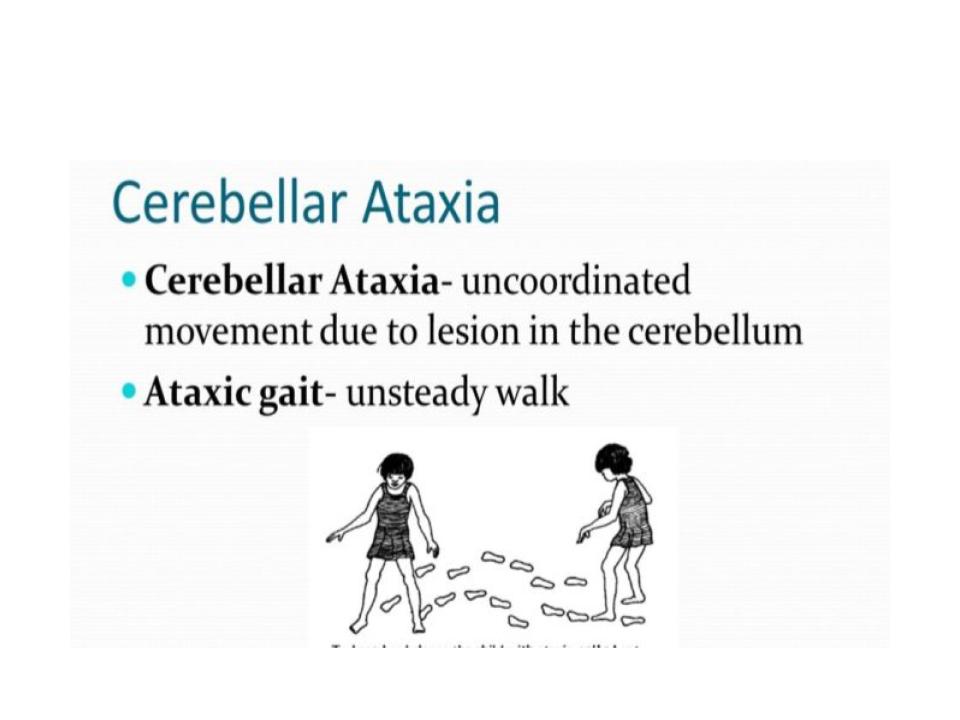
Cerebellar ataxia is a common neurologic finding. Although cerebellar degeneration may be chronic and slowly progressive, acute cerebellar swelling due to infarction, edema, or hemorrhage can be an emergency. Persons with ataxia may lose muscle control in their arms and legs which can lead to a lack of balance, coordination, and trouble walking. Ataxia may even affect eye movements, and slurring of speech.
The symptom of ataxia can be caused by many things including stroke, Multiple Sclerosis, tumors, alcoholism, nerve damage, metabolic disorders and vitamin deficiencies. In these cases, treating the condition that caused ataxia may improve it.
While the term ataxia usually describes symptoms, it also describes a group of specific degenerative diseases affecting the central nervous system called the hereditary and sporadic ataxias. Hereditary ataxias is a subtype caused by a defect in a gene that a person is born with. Sporadic ataxias is a subtype that usually starts in adulthood and has no known family history.
Ataxia is typically diagnosed by medical history, family history, and complete neurological physical examination. Medical professionals may also include laboratory test, genetic testing or MRI. We advise to always see your healthcare provider for a diagnosis. Call the Manhattan Center for Headache & Neurology and speak to one our caring health care providers for more information!
Jordan Shankle, PA
